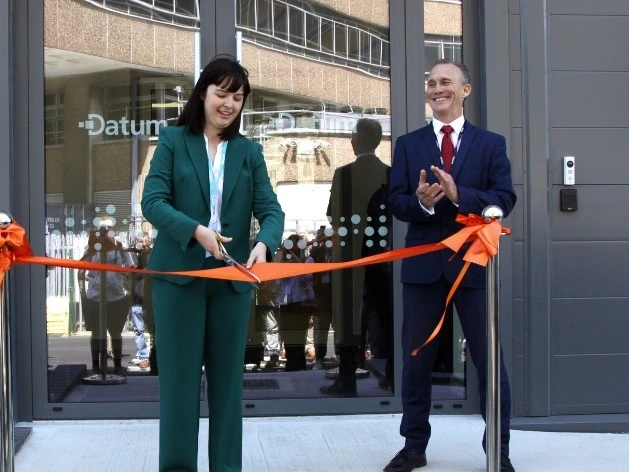- MCR2 provides 1,200 racks at up to 30 KW each, with full 2N redundancy and 100% power availability SLA
- The project aligns with region’s $635 million regeneration scheme
What happened: New Datum facility boosts Manchester’s role in UK data infrastructure
Datum Datacentres has inaugurated its second Manchester facility, MCR2, in the Manchester of the United Kingdom. Designed and constructed from the ground up, the site is equipped to host 1,200 racks, each supporting power densities of up to 30 kilowatts. The entire infrastructure features dual power circuits and full 2N redundancy, ensuring uninterrupted operation. Power usage effectiveness (PUE) is targeted at 1.25, with a 100% power availability service level agreement, underscoring Datum’s focus on both reliability and energy efficiency.
Located in south Manchester, the MCR2 site is part of a wider approximately $635 million regeneration strategy for the area. Datum partnered with Keysource, a design and build specialist, and collaborated closely with Manchester City Council during development. Originally envisioned as a retrofit of the former Simon House data centre (acquired through Teledata in 2022), the company opted for a full-scale rebuild in 2023, expanding the facility’s footprint from 2,323 to 4,153 square metres.
The opening ceremony was led by Councillor Emma Taylor, who emphasised the project’s value to the local community. Datum COO Matt Edgley noted that MCR2’s completion would meet growing demand for high-density computing, especially from cloud, AI, and enterprise clients. The site also meets high security standards, with on-site monitoring via an Alarm Receiving Centre connected to local police, and NSI Gold certification.
Also read: H5 Data Centers partners with DE-CIX for San Antonio connectivity
Also read: Aligned data centers expands with new facility in mansfield, TX
Why it’s important
Manchester continues to grow as a northern UK tech hub, attracting investment from cloud providers, AI startups, and data-reliant enterprises. MCR2’s high-capacity infrastructure directly addresses this demand, making it a critical asset in the region’s digital ecosystem.
Beyond tech capacity, the data centre represents a shift in urban redevelopment strategy—replacing underutilised sites with sustainable, high-impact infrastructure. The use of energy-efficient design, local employment during construction, and council involvement reflect a broader alignment of commercial and public interests.
The MCR2 launch also reinforces the trend of data centres as core civic infrastructure in modern cities, especially as AI applications drive demand for low-latency, high-density compute environments close to end users.

